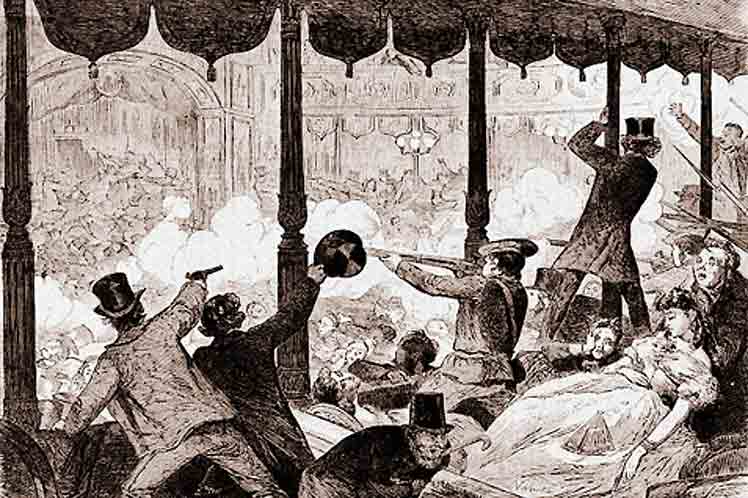Havana, Cuba: Cuba today commemorates the Cuban Theater Day in homage to the tragic events of the Villanueva Coliseum that occurred 152 years ago, shortly after the start of the independence war against Spain, Prensa Latina publishes.
On January 22, 1869, a performance of the Cuban bufo theater on the stage of the also known as Villanueva circus (Havana) ended in a confrontation between the Armed Corps of Volunteers of the Metropolis against civilians who attended the play.
Historical investigations do not agree on the exact number of deaths and injuries after the repression, due to the fact that the Spanish authorities hid the real data.
However, they do coincide in pointing out that the events occurred in a tense context of contradictions between Spain and her colony due to the insurrectional movement in the east of the country and the seditious support in the cities.
On October 10, 1868 Carlos Manuel de Céspedes, later known as Father of the Nation, freed his slaves to fight for a free Cuba and three months later a new Captain General, Domingo Dulce, arrived on the island to try to appease the lifting.
According to official sources, Dulce granted freedom of assembly and of the press, decreed an amnesty to encourage desertion in Céspedes’s troops, and applied other measures in that regard.
In the same month of his arrival (January, 1869) the residents of Bayamo set fire to the city before handing it over to the enemy, and in the capital the police discovered a deposit of arms and ammunition, and other events of redress for the violence of the Corps of Volunteers occurred..
Cuban historian Emilio Roig pointed out that in the Villanueva the works and songs that were offered were endorsed by the censorship, but the actors were in charge of giving the words and phrases of double meaning, the opportune patriotic intention.
In this context, for the performance of January 22 entitled Perro Huevero …. by Juan F. Valerio, the Volunteer Corps stationed itself on the outskirts of the theater in order to repress any sympathy for the island’s independence.
The researcher Rine Leal, in his book The Dark Jungle, assures that before the exclamations of Viva Cuba libre !, Down with Spain! and Long live Carlos Manuel de Céspedes! On behalf of the actors and the public, the soldiers entered and fired at the crowd.
Among those killed were the Cuban landowner Pablo González, son of the Count of Palatino, and his eight-year-old boy.
According to historians, the Cuban Apostle José Martí, at that time 15 years old, was very close to the place with his teacher Rafael María de Mendive, attending to the last preparations for his publication La Patria Libre.
In fact, the next day, Martí released his dramatic poem Abdala in that issue, which describes a young man’s resolve to defend the freedom of his native land even if it costs him his life.
After the events in the theater, no member of the Volunteer Corps was prosecuted and two years later those same soldiers provoked another event that shocked colonial Cuba: the shooting of eight medical students.
Cuba agreed in 1980 to celebrate Cuban Theater Day every January 22, the occasion is also propitious to carry out the so-called Villanueva Days, which address the most relevant of the island’s scenic art at the national level. (IVP)

